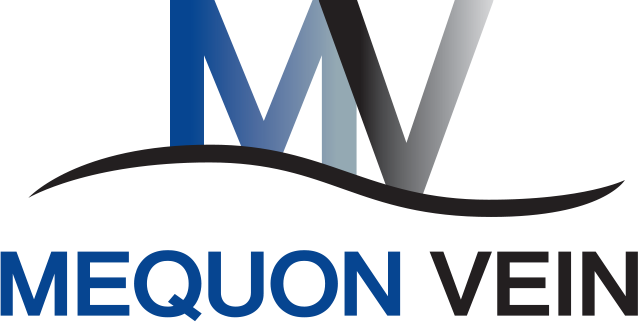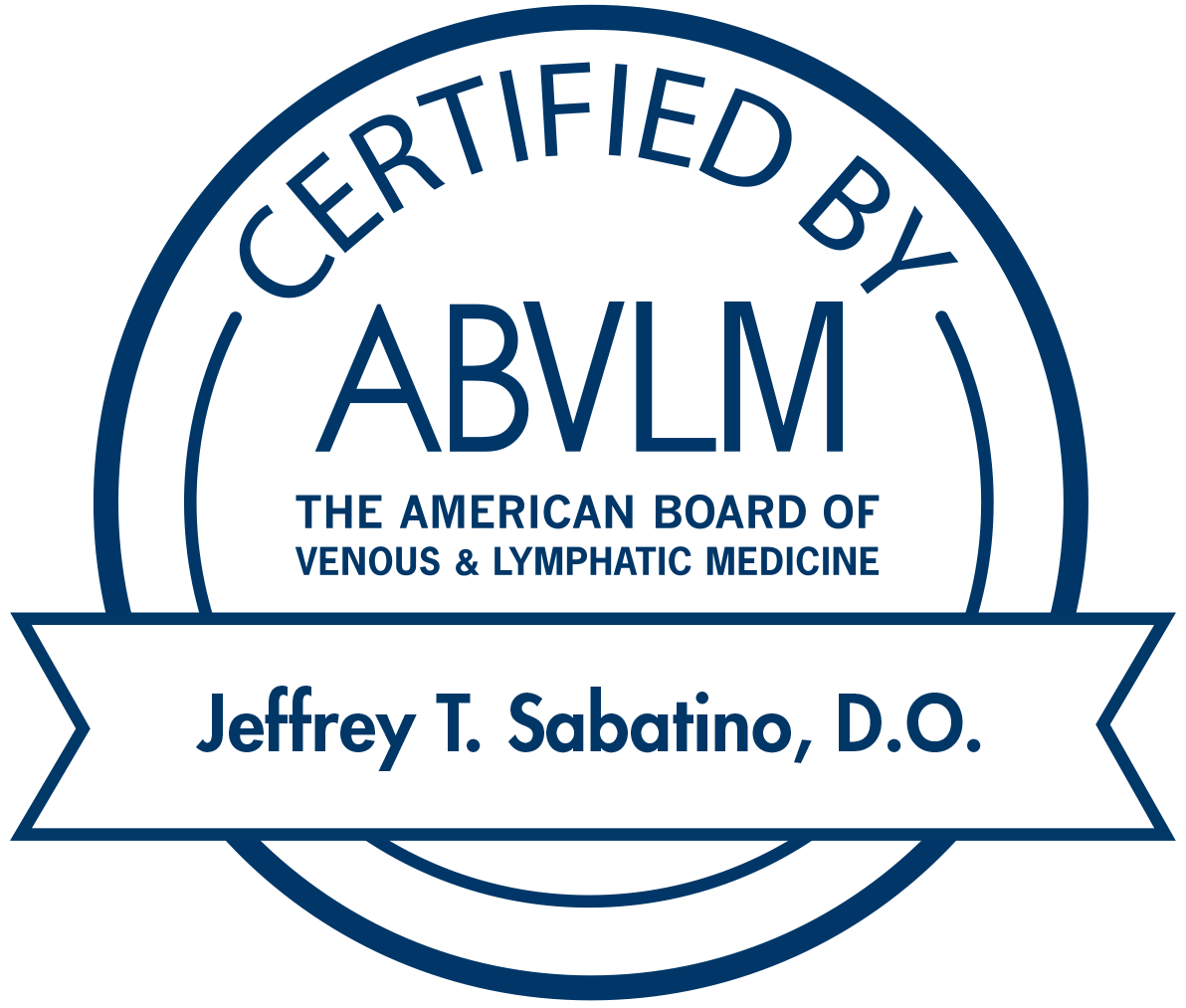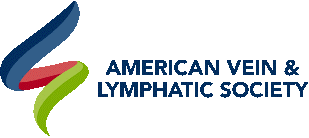Vein Treatment Frequently Asked Questions
As a common disease, many individuals are faced with varicose and spider veins. If you have questions, we are here to answer them.
If you suffer from spider veins or varicose veins in Wisconsin or northern Illinois, contact us today. We’ll set up a free 45-minute consultation with Dr. Jeffrey Sabatino. Most of our patients are free of symptoms when we complete our treatments.
What are varicose veins?
Varicose veins are enlarged, twisted blood vessels caused by weak or damaged valves. Blood flow is hampered, causing pooling within the vein itself. The veins become swollen and visible below the skin’s surface. While generally not dangerous to health, there are several medical conditions that can result from untreated cases of varicose veins, including:
- Blood clots / Deep vein thrombosis (DVT)
- Ulcers (open sores)
- Pulmonary emboli (blood clots in the lungs)
- Spontaneous dramatic bleeding
What are spider veins?
Spider veins have the same cause as varicose veins, but occur in the smallest veins near the surface of the skin. They are often described as red, blue, or purple marks in the shape of a spider web. Spider veins aren’t dangerous, and treatments are cosmetic.
Can varicose veins and spider veins be treated?
Yes. From cosmetic to medical, there are a number of treatments available. Treatments include:
- Endovenous Laser Ablation: Endovenous laser ablation uses heat generated by a laser to collapse and seal diseased and malfunctioning veins, diverting blood to healthier veins.
- Injections (Sclerotherapy): Sclerotherapy is commonly used to treat both varicose veins and spider veins. This procedure involves injecting a small volume of an FDA-approved medicine (sclerosant) into the diseased vein using a small needle.
- VenaSeal: A small catheter inserts VenaSeal, a medical-grade adhesive, into the diseased vein. The vein becomes sealed and blood flow is rerouted.
Are varicose and spider veins dangerous?
In rare cases, varicose veins can cause blood clots, which can be fatal, but in most cases, the symptoms are painful and irritating, but non-life-threatening.
Can varicose veins come back after being treated?
At Mequon Vein, 90% of our patients experience a full resolution of symptoms.
What risk factors are associated with varicose veins?
Risk factors include genetics, excess weight, pregnancy, aging, prolonged periods of standing, and lack of physical activity.
What causes varicose veins?
Varicose veins are caused when valves inside the veins become weak or damaged. This causes blood to pool in your veins, making them swollen and enlarged.
How to get rid of varicose veins?
At Mequon Vein, we focus on the treatments with the highest success rate and the least discomfort. There are several ways to reduce and eliminate the symptoms of varicose veins. These include:
- Sclerotherapy
- Laser treatment
- Catheter procedures
- Vein stripping
- Phlebectomy
When should I worry about varicose veins?
You should consult a doctor if your varicose veins are causing you significant pain and discomfort and are increasing in number and size.
How to prevent varicose veins
While varicose veins often appear through no fault of your own, there are some small lifestyle changes you can make to reduce your risk factors. These include:
- Maintaining a healthy weight
- Exercising regularly
- Elevating your feet while sitting
- Wearing medical grade compression stockings
Can varicose veins go away on their own?
Rarely. Varicose veins will sometimes go away on their own if they were caused by temporary, increased pressure on the abdomen from weight gain or pregnancy. They can partially improve after childbirth or with weight loss. Unfortunately, in most cases, varicose veins will only go away through treatment.
Are varicose and spider veins common?
Varicose veins are a common condition that affects about 30% of adults. Women are more likely to develop them than men.
Are varicose veins genetic?
Yes. Genetic factors are the leading cause of varicose veins, but they’re not the only cause. Other contributing factors include excess weight, pregnancy, aging, prolonged periods of standing, and lack of physical activity.
Can varicose veins cause blood clots?
In rare circumstances, varicose veins can develop into blood clots in the deep veins.
Do compression socks help with varicose veins?
While they won’t cure varicose veins, compression socks can help to reduce swelling and may prevent varicose veins from getting worse over time. Typically, when spider veins or varicose veins first appear, your doctor will prescribe compression socks as the first course of action.
Does insurance cover varicose vein treatment?
It depends. Your doctor must deem the treatment medically necessary in order for your insurance to cover the treatment.
Our Office Locations
Brookfield
VIEW BROOKFIELD HOURS
Monday: 7:30am-4:00pm
Tuesday: 7:30am-4:00pm
Wednesday: Closed
Thursday: Closed
Friday: Closed
Saturday: Closed
Sunday: Closed
VIEW BROOKFIELD HOURS
Monday: 7:30am-7:00pm
Tuesday: 7:30am-4:00pm
Wednesday: 7:30-4:00pm
Thursday: 7:30am-7:00pm
Friday: 7:30am-4:00pm
Saturday: Closed
Sunday: Closed
17280 West North Ave
Suite 200
Brookfield WI, 53045-4366
Mequon Vein Service Areas
Mequon Vein is a vein treatment center servicing Brookfield, Delafield, Germantown, Grafton, Menomonee Falls, Mequon, Milwaukee, New Berlin, Oak Creek, Oconomowoc, Pewaukee, Racine, Sheboygan, Thiensville, Waukesha, Wauwatosa, West Bend and the surrounding communities in Southeast Wisconsin. If you need vein treatment, contact our physicians today for a free consultation.



